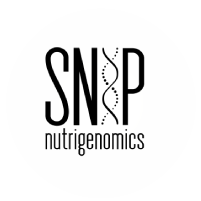Here at SNiP, we believe that one-size-fits-all is a thing of the past.
This goes for diets, too.
What is Keto?
The ketogenic diet has made big waves in the health world. And for good reason. Many people have found incredible success, including weight loss, by modifying their eating habits and “going keto.”
But is this diet right for you? What does the science say?
In this blog post, we’ll explore the keto diet, its benefits and drawbacks, and whether it is something you should consider.
Keep reading to learn everything you need to know about the keto diet.
First things first, let’s define the keto diet. The ketogenic diet is a low-carb, high-fat diet that emphasizes reducing carbohydrate intake and replacing it with healthy fats.
When we eat carbohydrates, our bodies typically break them down into glucose to provide energy.
However, when we reduce our carbohydrate intake, our bodies switch to burning fat for fuel, producing ketones.
The state of glucose deprivation is known as ketosis.
A significant benefit of the keto diet can be successful weight loss. With limited carbohydrate intake, the body has less glucose to convert into fat, so the body starts to burn stored fat for fuel.
Additionally, the keto diet can also help improve some health conditions such as high blood pressure, type 2 diabetes, and even epilepsy.
It’s Not For Everyone
While many people have achieved significant weight loss results and benefits with the keto diet, it may not be suitable for everyone.
The sudden reduction in carb intake can cause fatigue, mood swings, and various other symptoms known as ‘keto flu’ in some people.
Also, people with liver or kidney problems should consult their doctor before starting on the keto diet.
Keto Caveats
Another critical aspect of the keto diet is that it emphasizes healthy fats. This means you should only consume good-quality fats, such as those found in nuts, seeds, avocados, fatty fish, and olive oil.
It can be challenging to follow the keto diet initially, but with the right mindset and preparation, it can become easier.
When starting the keto diet, you must plan your meals ahead of time, read nutritional labels, and limit processed foods.
If this all feels overwhelming, consider a service like Nourishing Meals, which provides valuable support for those starting a new diet. Founded by Alissa Segersten, Nourishing Meals is designed to simplify keto and other dietary approaches, especially for those with additional food allergies or specific preferences. Alissa’s approach is tailored to make healthy eating accessible and manageable for families with unique dietary needs.
When you’re eating out, it’s helpful to know what your keto-friendly options are. These top-rated Keto apps for 2024 can help you decide from the array of options on your menu.
What Does Your Genetic Blueprint Say?
While this may sound great on paper, the keto diet may or may not be suitable for you, depending on your genetic makeup.
A particular gene, FTO, plays a significant role in determining whether the keto diet will work for you.
What is FTO?
FTO stands for Fat mass and Obesity-Associated gene Single Nucleotide Polymorphism. This particular gene plays a crucial role in determining obesity and body fat.
FTO is responsible for regulating appetite, energy expenditure, and body weight. However, recent studies have shown that it has a direct impact on the effectiveness of the keto diet.
Red (homozygous, both parents gave you a mutation) or Yellow (one parent gave you a mutation)
If you have a red or yellow FTO SNP, it may indicate that the keto diet is unsuitable for you. This is because people with a red or yellow FTO SNP produce higher levels of ghrelin, a hormone that stimulates appetite and enhances fat storage. In this case, keto’s high-fat intake may increase body fat and weight gain.
More protein and low fat may be your best bet with FTO mutations
If you have a red or yellow FTO SNP and are wondering how to approach your weight loss journey, experts recommend a high-protein diet (25 grams per meal) and a low-fat diet to normalize your body mass index.
Protein is an essential nutrient that helps build muscle mass, reduce body fat, and improve metabolism. High protein intake not only keeps you feeling full for longer but also helps with weight loss.
Should you consider a keto diet?
A keto diet may work for you if you are green on FTO, which is often associated with lower body weight and a better response to diet and exercise.
However, it is essential to remember that every person’s body is different, and one diet may not work for everyone.
Also, keep in mind that just because you are following a keto diet, you shouldn’t eat unhealthy fats like processed foods, deep-fried foods, or fast foods.
Obesity isn’t just in your genes, it’s in your lifestyle too. So here’s the deal:
Get moving!
Aim for 2 1/2 hours of brisk walking each week. Even 10 minutes at a time counts. Pumping iron twice a week will give you some serious muscle power.
Eat smart
Cut back on calories. Trimming 500 to 1,000 a day can help you shed 1 to 2 pounds weekly.
Choose wisely
Opt for fruits, veggies, whole grains, and low-fat dairy. Fish, lean meats, beans, eggs, and nuts are also fantastic options.
The Genetic Edge: Is Keto Right for You?
The FTO SNP plays a crucial role in regulating energy expenditure, body weight, and appetite, making it a vital determinant of whether the keto diet is right for you. If you have a red or yellow FTO SNP, it may be better to opt for a high-protein diet and low-fat instead of the keto diet. As always, it can be best to consult a healthcare practitioner before starting a new diet to ensure you are receiving proper nutrition. Understanding your genetic makeup and how it affects your nutrition choices is a significant step towards a healthy lifestyle.


